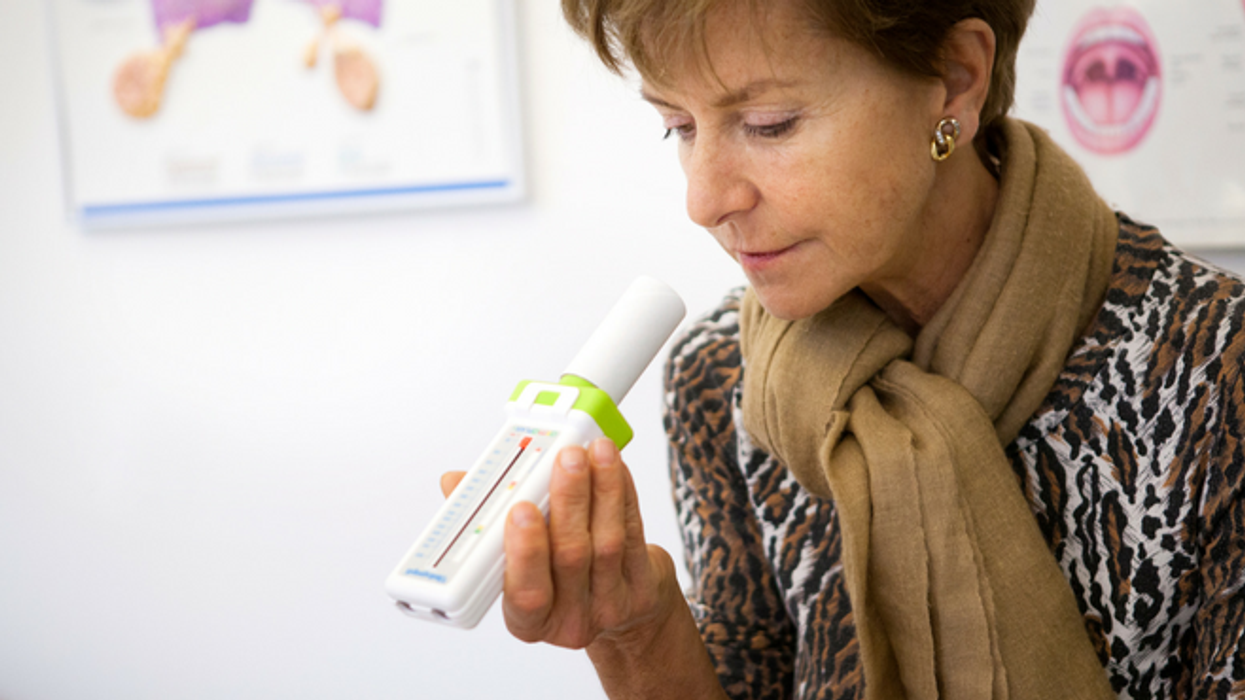A Nebraska woman got the shock of a lifetime when doctors realized that her "allergies" were actually something but more disturbing.
Kendra Jackson began experiencing symptoms that mimic common allergies a couple years after a severe car accident in 2013. Having hit her head on the dashboard, Jackson started suffering from chronic headaches and a constant nasal drip, which caused her to cough and sneeze incessantly. Speaking with KETV in Omaha, Johnson detailed her affliction.
"Everywhere I went I always had a box of Puffs, always stuffed in my pocket...[it was] like a waterfall, continuously, and then it would run to the back of my throat. I was like a zombie.
But the sheer amount of fluid Jackson was losing every day, which totaled roughly half a pint, and her general feeling of malaise made Jackson realize that her condition was probably more series than normal allergies. So she sought help from an ear, nose, and throat doctor, who then made a startling diagnosis.
Jackson had a cerebrospinal fluid leak—that is, fluid from her brain was leaking into her nose through a hole in her skull. Mind you, this was recurring every day, for three years. If left untreated, a leak of brain and spinal fluid can lead to serious infections, including meningitis, vision changes and hearing loss.
Nebraska Medicine rhinologist Christie Barnes explained to KETV how she was able to solve Jackson's problem. First, a camera was inserted into Jackson's nose to identify the location of the leak. Next, Barnes plugged the hole, which was located between Jackson's skull and nostrils, with fatty tissue.
In the week since her minimally invasive procedure, Jackson said she has been feeling much better. "I don't have to carry around the tissue anymore, and I'm getting some sleep," she said, laughing.
In less surprising news, Twitter was fascinated with the story.
Apparently, there was a Grey's Anatomy episode that featured a cerebrospinal fluid leak.
Some concern, however, was over how Jackson's doctors missed what is usually a simple, albeit uncommon, diagnosis.
The lesson here? Trust your instincts, and listen to your body. Seek help if you feel something is wrong, because you just could be right.








 Roberto Schmidt/AFP via Getty Images
Roberto Schmidt/AFP via Getty Images





 u/pizzaratsfriend/Reddit
u/pizzaratsfriend/Reddit u/Flat_Valuable650/Reddit
u/Flat_Valuable650/Reddit u/ReadyCauliflower8/Reddit
u/ReadyCauliflower8/Reddit u/RealBettyWhite69/Reddit
u/RealBettyWhite69/Reddit u/invisibleshadowalker/Reddit
u/invisibleshadowalker/Reddit u/Wishnik6502/Reddit
u/Wishnik6502/Reddit u/kateastrophic/Reddit
u/kateastrophic/Reddit u/blking/Reddit
u/blking/Reddit u/SlagQueen/Reddit
u/SlagQueen/Reddit u/geezeslice333/Reddit
u/geezeslice333/Reddit u/meertaoxo/Reddit
u/meertaoxo/Reddit u/crystal_clear24/Reddit
u/crystal_clear24/Reddit u/stinkpot_jamjar/Reddit
u/stinkpot_jamjar/Reddit
 u/Bulgingpants/Reddit
u/Bulgingpants/Reddit
 @hackedliving/TikTok
@hackedliving/TikTok @hackedliving/TikTok
@hackedliving/TikTok @hackedliving/TikTok
@hackedliving/TikTok @hackedliving/TikTok
@hackedliving/TikTok @hackedliving/TikTok
@hackedliving/TikTok @hackedliving/TikTok
@hackedliving/TikTok @hackedliving/TikTok
@hackedliving/TikTok @hackedliving/TikTok
@hackedliving/TikTok @hackedliving/TikTok
@hackedliving/TikTok @hackedliving/TikTok
@hackedliving/TikTok
 @vanderjames/Instagram
@vanderjames/Instagram @vanderjames/Instagram
@vanderjames/Instagram @vanderjames/Instagram
@vanderjames/Instagram @vanderjames/Instagram
@vanderjames/Instagram @vanderjames/Instagram
@vanderjames/Instagram @vanderjames/Instagram
@vanderjames/Instagram @vanderjames/Instagram
@vanderjames/Instagram @vanderjames/Instagram
@vanderjames/Instagram @vanderjames/Instagram
@vanderjames/Instagram @vanderjames/Instagram
@vanderjames/Instagram